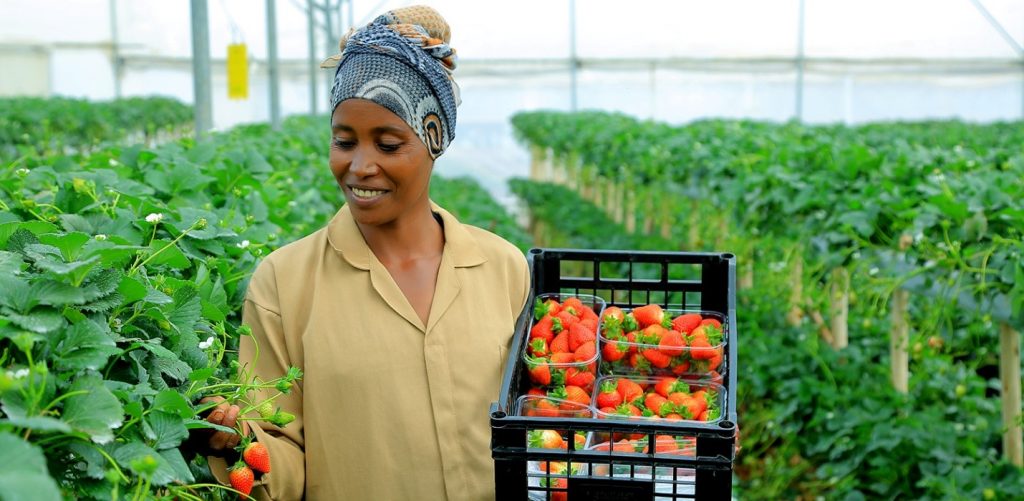Ethiopia Employing Strategies to Nurture Agriculture and Agro-Industries
Published: March 5, 2021
The Government of Ethiopia is undertaking reforms to transform and diversify its economy. These reforms will enable the transition from a state-driven economic model to one led by a vibrant private sector. The transformation of Ethiopia’s economy is critical to ensuring broad-based, inclusive growth necessary for reducing poverty and inequality, creating decent jobs, and improving the livelihoods of its citizens.
Developing Ethiopia’s agricultural sector is a national priority to achieve sustainable growth and food security as stipulated in the ten-year national development plan. This plan highlights the need to improve the sector’s climate-dependence, expand irrigation, and enhance environmentally-friendly mechanization practices. For example, greater use of tractors, pumps, and post-harvest processing equipment will result in higher-volume and higher-quality agricultural output. Increased demand for mechanized equipment and promotion of innovative approaches for the development of low-cost agricultural equipment will lead to greater industrialization and increased efficiency in the sector. The government plan also supports voluntary land consolidation and a cluster approach for maximizing outputs, developing horticulture, livestock, and encouraging the overall participation of the private sector in agriculture.
Similarly, the Home-grown Economic Reform program demonstrates how the growth in agricultural output and productivity is fundamental to the overall economic development of the country. Moreover, the reform program identifies the agriculture sector as an important source of employment, and generator of foreign currency through trade, a foundation for agro-processing, as well as a market for the development of importantly related industries such as pesticides, fertilizers, machinery, and equipment.
The government has taken significant steps to grow and modernize the agricultural sector, including supporting the development of agro-industrial parks, increasing financial access to farmers and investors, and also provided tax-free support to imports of agricultural mechanization, irrigation, and animal feed technologies, transportation, and equipment. This support and the reforms to improve the business environment in Ethiopia have resulted in a growing number of investors in agriculture and agro-industry. The measures taken as part of the economic reform program for the sector have increased food production for domestic consumption, enhanced production for export, and provides a basis for agro-processing and industry to grow in the country.
Agro-industry is a key part of the structural transformation in Ethiopia’s economy. Ethiopia has plentiful agricultural resources including cattle, forests, cropland, as well as suitable climate conditions, and a labor force that is necessary for agro-processing industries to develop. There is also significant potential in dairy production, meat and meat products processing, processing of fruits and vegetables, processing of pulses, oilseeds, and cereals, processing animal feeds and coffee, among other products.
Ethiopia’s agro-industries will be an engine for growth by creating employment, increasing incomes, and alleviating poverty. They also will enable related industries, such as distribution and retail trade activities, to flourish.







